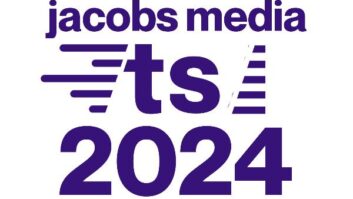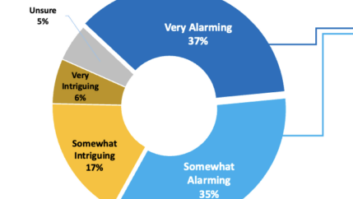Seeking the Holy Grail – 2005 Salary Survey
Oct 1, 2005 12:00 PM, By Kari Taylor, senior associate editor
These days, the holy grail of modern man is money. What else is sought after more? This year’s salary survey is broken down by job titles. The data provides statistics on salaries for various job titles in an effort to help engineers in the radio industry find their holy grail. Overall, the statistics show favorably to our industry. For instance, the average salary increase among those who received one within the last year was 5.3 percent. Also, two-thirds of respondents indicated that computer/IS/IT functions are considered part of the engineering department’s responsibility. Read on for more useful information to help you in your quest for the holy grail.
Station chief engineer

Estimated Median Salaries by SBE Certification
Click here for larger image.
If you are the chief engineer at your station, you probably wonder if you are being compensated fairly compared to your peers. According to the 2005 salary survey, the average chief engineer received a salary increase to $54,999. In fact, 61 percent of his peers received a salary increase. And if you hold a SBE certification of some sort, you would be in good company because 39 percent of radio station chief engineer respondents hold some level of SBE certification.
The average age for a station chief engineer is 49 and he has been in the broadcast engineering industry for about 24 years. On average, station chief engineers have worked in that position for 11 years. He is personally responsible for three radio stations.
Station/staff engineer

Estimated Median Salaries for Staff Engineers
Click here for larger image.
As a staff engineer at a radio station, do you feel you are leading the pack in the race for the holy grail or do you feel you might be lagging behind? Radio magazine’s 2005 salary survey shows that the average station/staff engineer’s salary in 2005 remained stable, regardless of market size. In 2005 the average staff engineer earned $48,000 in Below Top 50 markets and $64,999 in Top 50 Markets. Sixty-three percent of staff engineers received a salary increase in the last year.
The average staff engineer respondent from the salary survey is responsible for four stations. He has been in the radio industry about 16 years and has been a station/staff engineer for about eight years. The average age for a staff engineer at a radio station is 44.
Of all the station and staff engineer respondents, only 25 percent of station/staff engineers are SBE certified.
Operations staff/managers
If your job title includes operations staff or manager, your estimated median salary is $36,000. This breaks out to $41,666 in Top 50 markets and $34,166 in Below Top 50 markets. For operations staff and managers 15 years is the average time spent in the broadcasting industry. You have spent an average of eight years in your current position, which is just under the industry average of nine years. Operations staff and managers tend to be some of the youngest members of the group at 42 years of age.
Market regional director/corporate engineer

Percent Holding SBE Certification
Click here for larger image.
Market regional director and corporate engineers have found the holy grail. Not only are these people most likely to receive a salary increase (70 percent received one), but they also earn the highest salaries. The average median salary for a market regional director and corporate engineers is $69,999. In Top 50 markets the average median salary is $82,000 and in Below Top 50 markets its $64,999.
These people average about 50 years old and have been in the business for 28 years. The average time they have spent in their current position is eight years.
People under these job titles are the most likely to hold an SBE certification: 64 percent of them, according to the salary survey. Of those engineers who hold SBE certification, it is most likely to be at the CPBE or CBMT level.

Estimated Median Salary by Job Function
Click here for larger image.
Corporate officer/co. management/sole proprietor
As a corporate officer, company management or sole proprietor, you average a salary of $43,333. You have been in the radio industry about 25 years and in your current position for about 15 years, which is the longest time in one position compared to any other job title. Corporate officers average 53 years of age.
Contract engineer

Average Hourly Rates
Click here for larger image.
Nearly a third of contract engineers earn an hourly rate of $30 to $39. And nearly half of contract engineers indicated in the survey that their charges are based on time only. Thirty-five percent indicated that their charges are based on a combination of time and fee, and 15 percent charge a flat fee for specific work. While 54 percent of contract engineers have a minimum charge for emergency calls, 46 percent charge a different rate for these calls. Almost 38 percent of contract engineers bill between three and nine hours per week.
Vice president/general manager
The typical vice president or general manager of a radio station has worked in this industry 18 years and has been working in his current job title for 10 years. He is about 46 years old and earns a salary of $49,999. Fifty-seven percent of vice president and general managers received a salary increase this year.

How many stations are you responsible for?
Click here for larger image.
Few vice presidents and general managers of radio stations hold SBE certification: only 10 percent.
On June 16, 2005, we sent e-mailed invitations to participate in an online survey to more than 3,600 subscribers of Radio magazine. A link was included on the invitation to route respondents directly to the questionnaire. Some of the results of this study are presented by job title group and market rank. (Top 50 and Below Top 50). The survey’s objectives were to determine salary levels among Radio magazine readers for select title groups and to examine salary trends over time.












